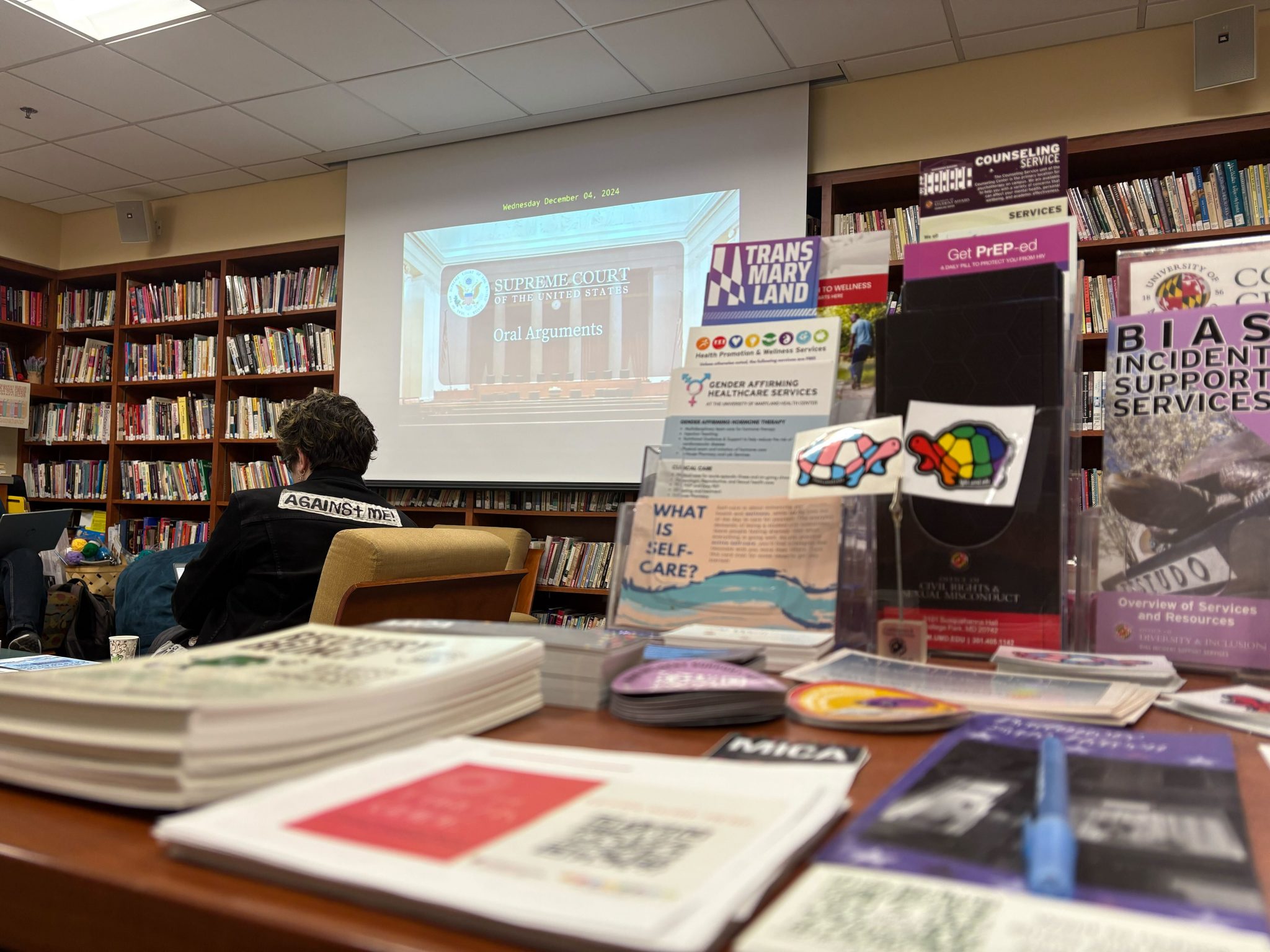University of Maryland community members gathered in the LGBTQ+ Equity Center Wednesday morning to listen to Supreme Court justices pepper lawyers with questions in the oral arguments of U.S. v. Skrmetti.
In the case, petitioners allege that a Tennessee law that bans gender-affirming care for minors violates the equal protection clause of the 14th Amendment. The law, which went into effect in July 2023, prohibits people younger than 18 years old from using hormone therapy and puberty blockers to transition.
The law says the state has a “legitimate, substantial and compelling interest” in encouraging minors to appreciate the sex they were assigned at birth.
For LGBTQ+ Equity Center program manager Adam Klager, the oral arguments highlight a lack of understanding of necessary gender-affirming care and showcase the importance of spaces for LGBTQ+ people to process events.
“The ability to access gender-affirming health care can have a really big impact on people and their ability to get through the day,” they said. “I think if we can have a space to come together as a community and see that and process that and face that together, then I think that’s more helpful than seeing it alone.”
[UMD SGA allocates more than $1,700 in additional funding for gender-affirming care items]
Michael Spivey, a senior government and politics lecturer at this university who teaches law, provided an analysis of the case for listen-along attendees.
Tennessee’s law only applies if a minor plans to use treatments to transition, Spivey said. This means cisgender youth are allowed to use treatments to develop characteristics that align with their sex assigned at birth, he explained.
“To me, that is discrimination based upon sex,” Spivey said at the event.
Leah Morgan, a freshman public policy major, said she attended Wednesday’s listen-along event to understand how the Supreme Court is taking on LGBTQ+ issues. She feels the court is making decisions that don’t align with widespread public opinion, she said.
Morgan thinks it is important to “be in solidarity” with the LGBTQ+ community and stay informed because if one marginalized group’s rights are targeted, “it could often indicate that other groups’ rights are to come,” she said.
“I think even if something isn’t impacting you personally, it’s likely impacting those around you or other folks you care about,” Morgan said. “If folks’ basic civil rights are up for grabs, then that puts a lot more energy into playing defense rather than building toward a more … productive future.”
[Pioneering UMD Deaf faculty member Jill Bradbury aims to improve accessibility in theater]
Spivey added that the social climate can affect the way the Supreme Court rules. Attacks on transgender rights have become a key focus in politics, including in President-elect Donald Trump’s presidential campaign.
Twenty-six states — including Tennessee — have passed laws that restrict gender-affirming care for transgender youth, CNN reported Tuesday.
Klager said that’s even more of a reason to create LGBTQ+ community spaces.
“If the political climate around trans issues and trans rights becomes less favorable, I think that’s just more of a reason for us to come together and have space to at least be with each other to weather through that,” they said.
The Supreme Court seemed likely to uphold Tennessee’s law and is expected to release its decision on U.S. v. Skrmetti by summer 2025, CNN reported Wednesday.



